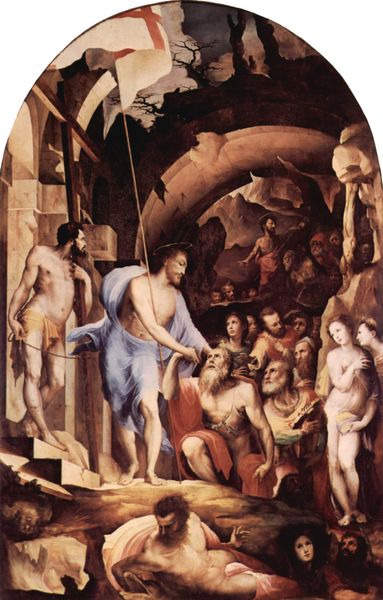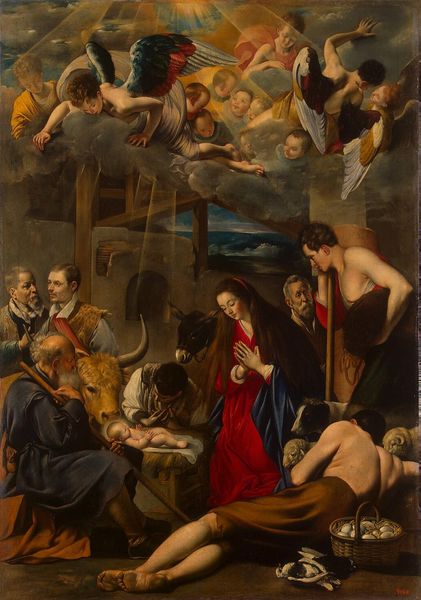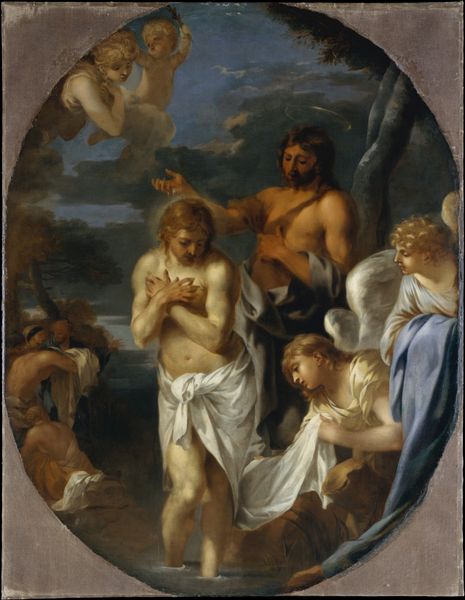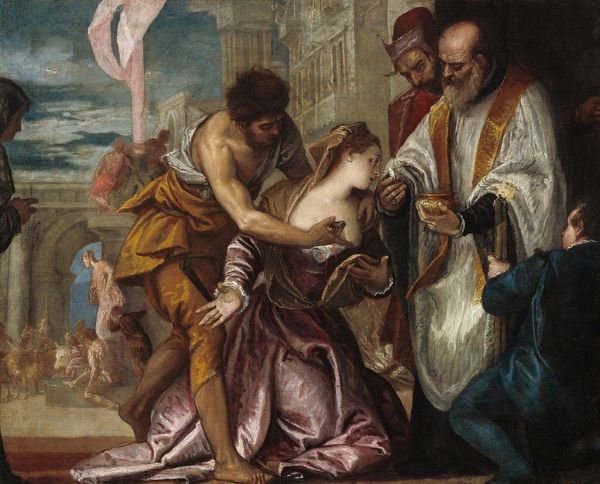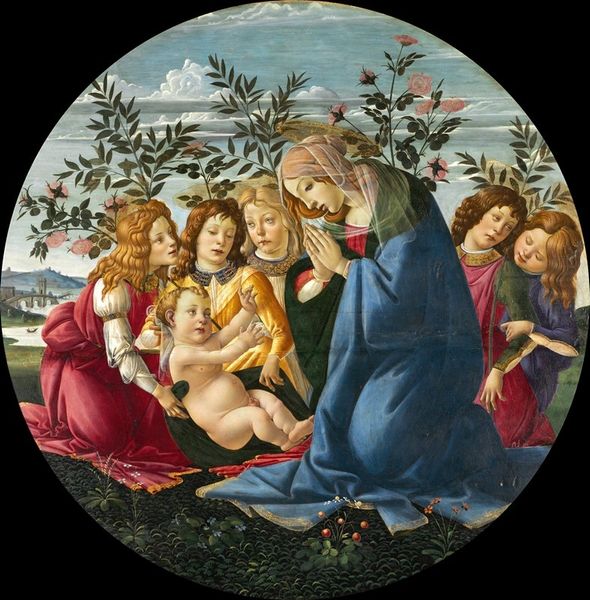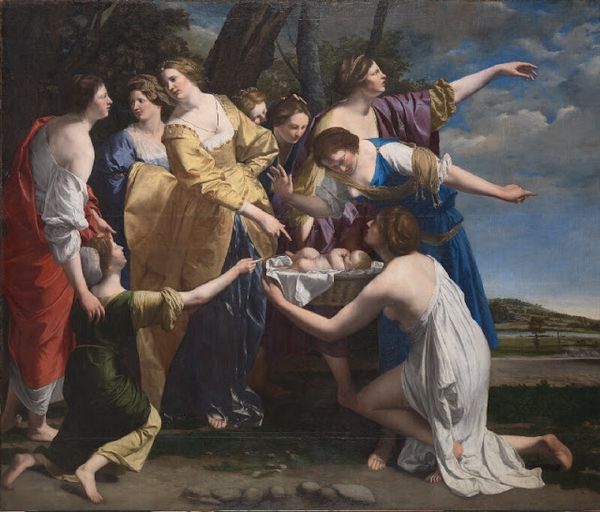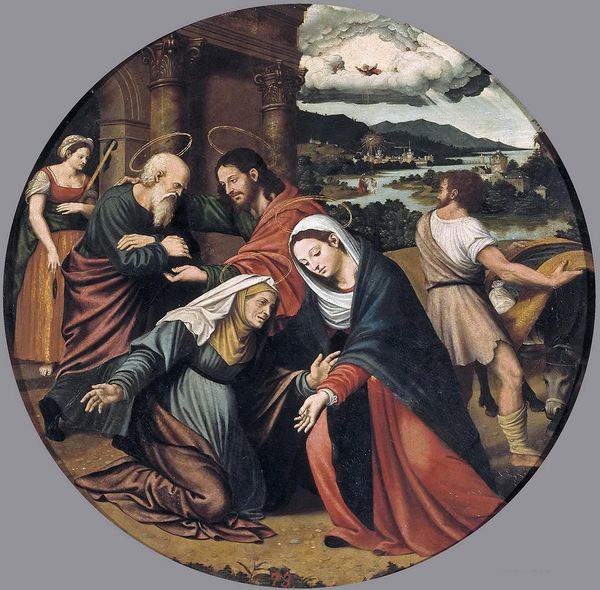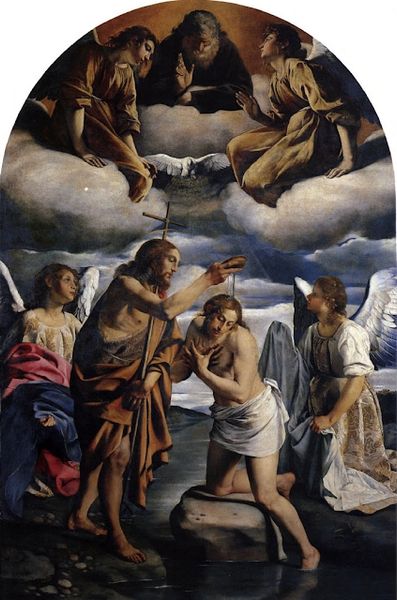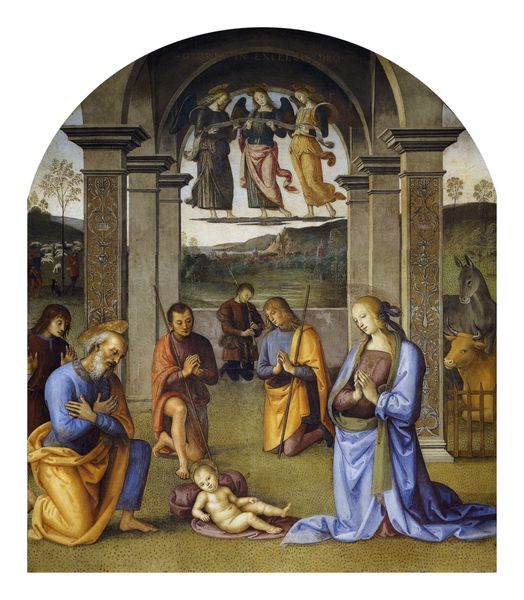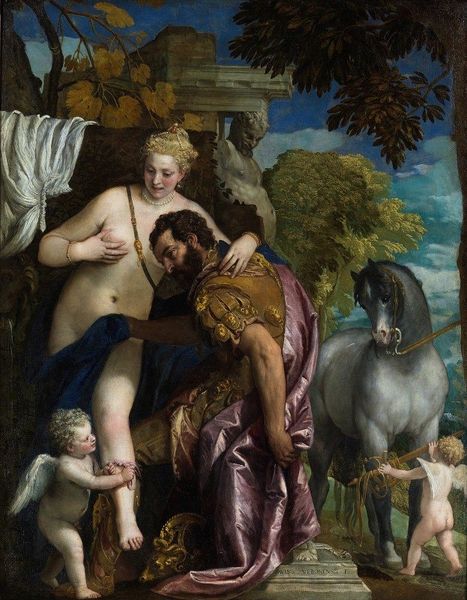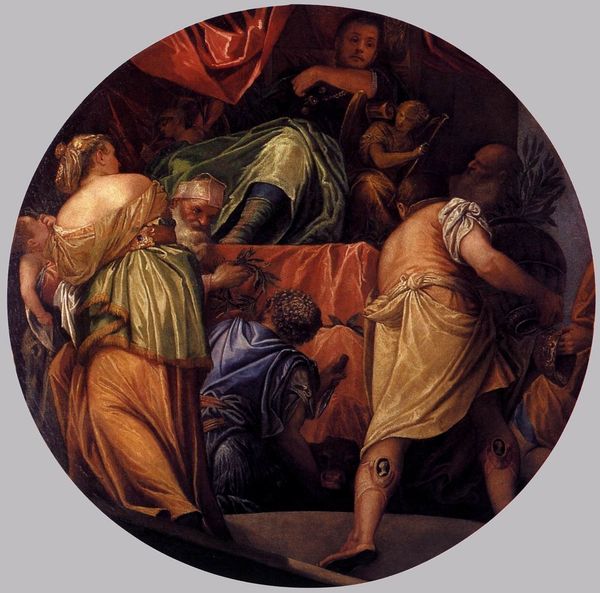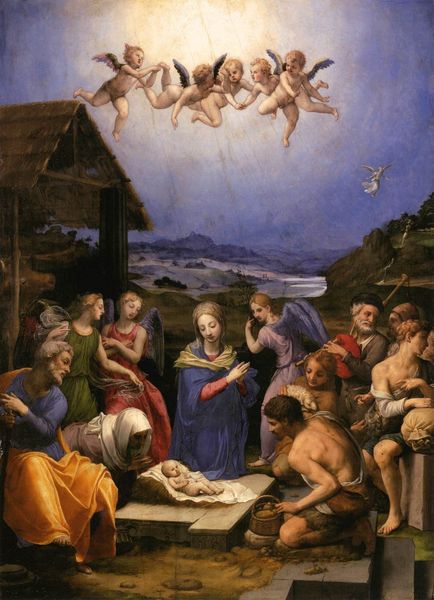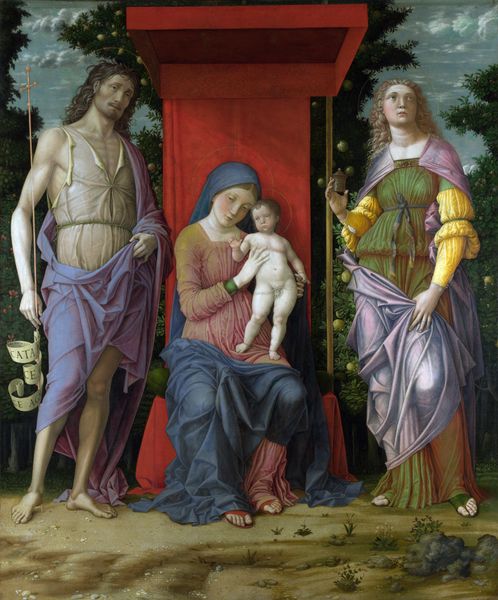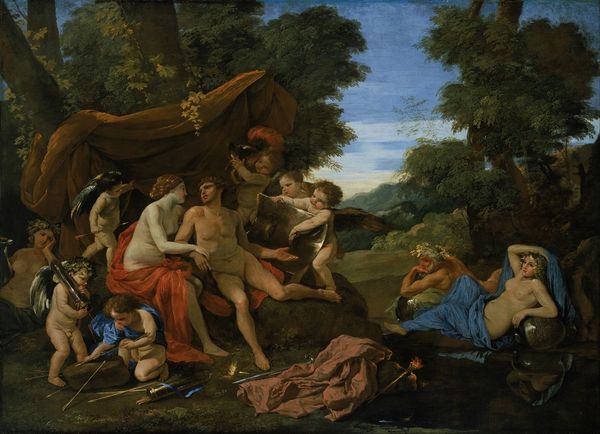
painting, oil-paint
#
allegories
#
high-renaissance
#
venetian-painting
#
allegory
#
painting
#
oil-paint
#
figuration
#
mythology
#
academic-art
Copyright: Public domain
Paolo Veronese painted this roundel named ‘Music’ in the 16th century in Venice. The painting's symbolic heart lies in its musical instruments: the lute, the cello, and the act of playing itself. In Renaissance culture, making music represented harmony and order. The musical instruments connect to a long line of classical ideals, reminding us of Apollo, the god of music. These instruments also echo through time into earlier Greek and Roman art where music and harmony stood for civilized society. But Veronese doesn't merely copy the past. Instead, we see an evolution, a rebirth, or ‘rinascimento’ as the Italians would say, where ancient symbols gain new life in a Christian context. Note that while the statue of what appears to be Zeus oversees the scenery, it is now infused with the humanist spirit of the Renaissance. The emotional power of music in this image is its ability to evoke a sense of shared human experience. By connecting us to both the classical past and the cultural values of the Renaissance, Veronese’s ‘Music’ creates a layered, emotionally engaging experience. The cycle continues, revealing how our subconscious is filled with echoes of the past.
Comments
No comments
Be the first to comment and join the conversation on the ultimate creative platform.
